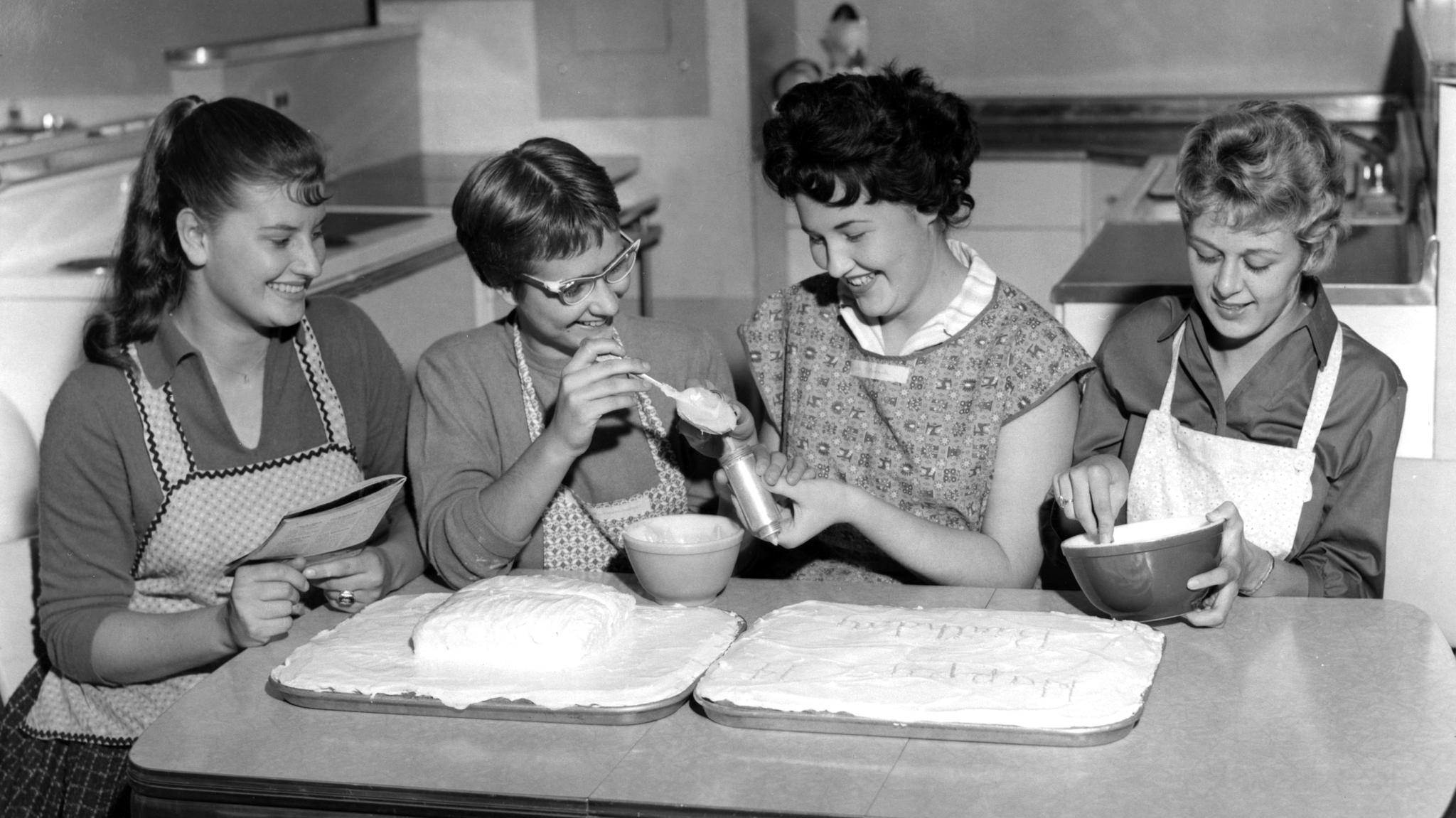Despite A Revamped Focus On Real-Life Skills, 'Home Ec' Classes Fade Away
Now called family and consumer sciences, courses suffer from few qualified teachers and declining enrollment. But in today's classes, students learn about gardening, nutrition, labeling and finance.
by Tove Danovich
Jun 14, 2018
4 minutes

"Sometimes we take for granted that kids know how to wash dishes," says Susan Turgeson, president of the Association of Teacher Educators for family and consumer sciences. "I never thought I was going to have to explain, step by step, how to put the drain plug in, the amount of soap to be used."
Yet in many family and consumer sciences (FCS) classes in the United States, once known as "home economics," teachers are instructing students in basics such as how to keep countertops clean or tell a teaspoon from a tablespoon. In 2010, the sought to address the rise of childhood obesity. But despite the renewed interest in showing children how to eat well, FCS classes haven't gained
You’re reading a preview, subscribe to read more.
Start your free 30 days



